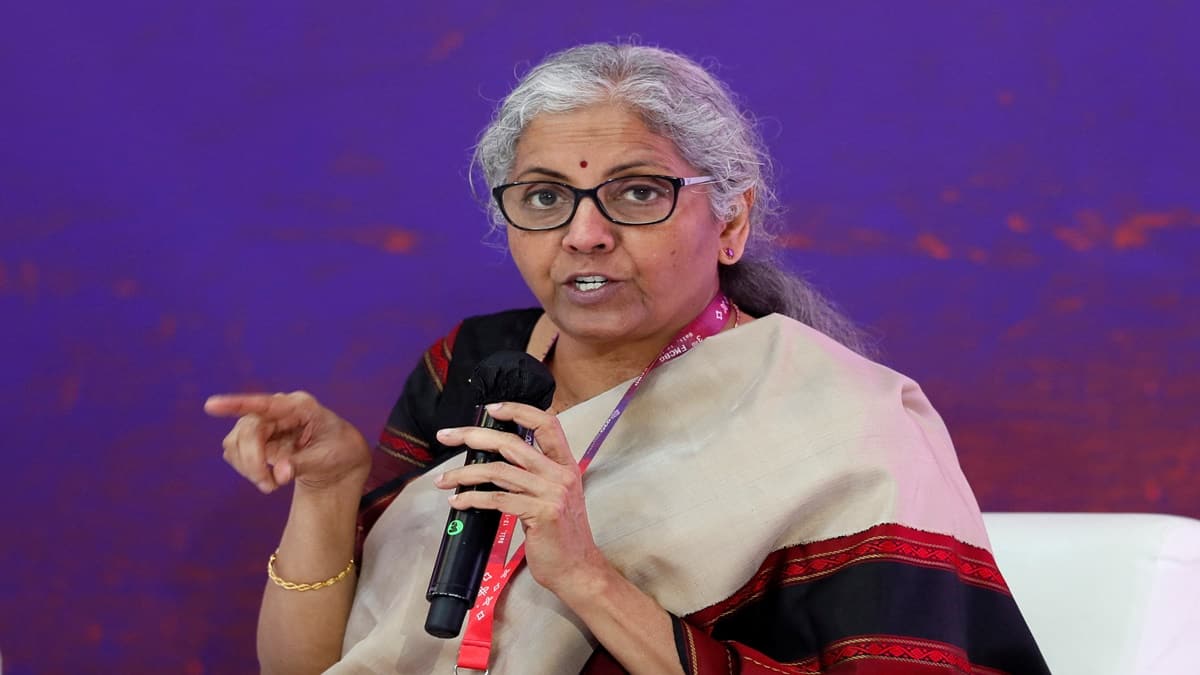Fiscal prudence top priority, economy on the right track: FM
Fiscal prudence is the top priority of the government, but won’t compromise on social welfare, Finance Minister Nirmala Sitharaman said on Tuesday, while seeking the Lok Sabha’s nod for additional spending, including Rs 20,000 crore for the jobs guarantee programme, and Rs 16,300 crore for fertiliser subsidy in FY24.
The lower house approved the first Supplementary Demands for Grants gross additional spending of Rs 1,29,349 crore. Of this, the proposals involving net cash outgo aggregated to Rs 58,378 crore and Rs 70,968 crore were met through savings under various heads or by enhanced receipts/recoveries.
She said this was reflected in the fact that the Indian economy grew by a robust 7.6% in the July-September quarter of the FY24, the highest among major economies.
Measures to curb food inflation
Responding to criticism of the government’s decision to ban the export of onions, Sitharaman said the government was balancing the interests of farmers and consumers. More often, it is inclined towards farmers.
“But, if there are shortages in getting something as essential as onion to the market, we will have to ensure Indian consumers get the priority and we need to come up with these measures,” she said. The government, which had imposed a minimum export price of $800/tonne in October, banned exports last week to check the spike in retail prices.
Food inflation for November came in at 8.7%, the highest level since August.
The minister said the government has not only increased minimum support price (MSP) for various crops significantly in recent years but also has ensured enhanced procurement from farmers to ensure they got the right price for their produce. Robust procurement could potentially boost rural income and purchasing power.
For all key rabi and kharif crops, the MSP increases this year have been the highest since 2018-19 when a new policy of 50% profits over computed cost of production was adopted for the price setting.
The MSP of wheat, the key rabi crop, has been raised by 7.05% to Rs 2,275/quintal for the 2024-25 marketing season (April-June), the sharpest increase since 2014-15. The MSP for paddy, the key kharif crop, was fixed at Rs 2,183/quintal, up 7% on the year.
Cesses and surcharges
Responding to the allegation that cess receipts were not shared with states, the minister said 99.32% of all cess collected between FY19 and FY23 have been provided to states through various schemes. Of course, the Centre enjoys discretion in the manner which these proceeds are expended.
Cess and surcharges is not part of the divisible tax pool and hence not directly shared with the states. The share of cess and surcharge, in the union government’s gross tax revenue (GTR), which has been rising gradually from around 9% in the 13th FC (FY11-FY15) to 15% by the end of the 14th FC in FY20, rose sharply to over 20% in FY21, the first year of 15th FC award. Thereafter, it moderated a bit as the Centre cut cess on petrol and diesel to stem inflationary pressures.



